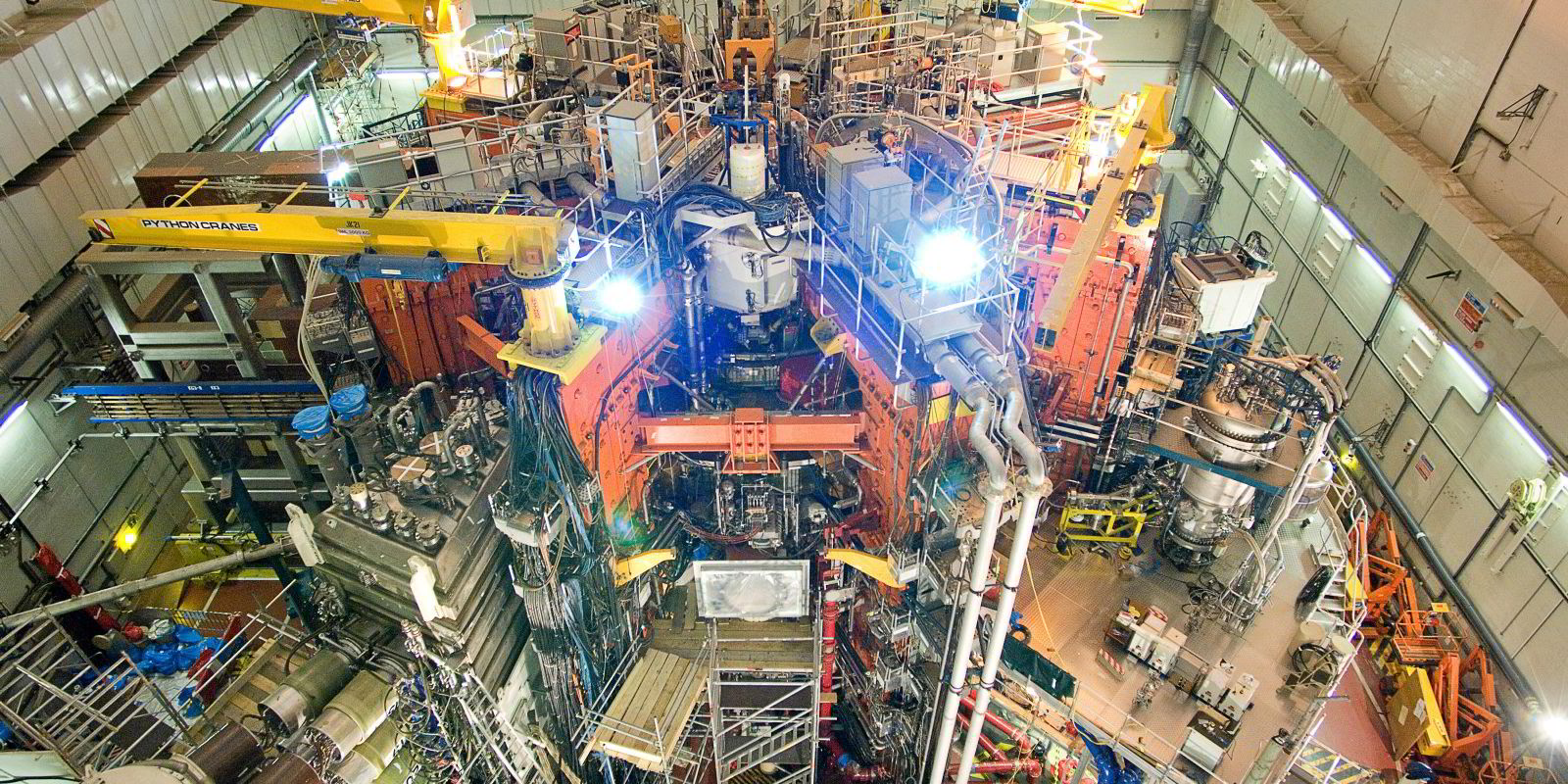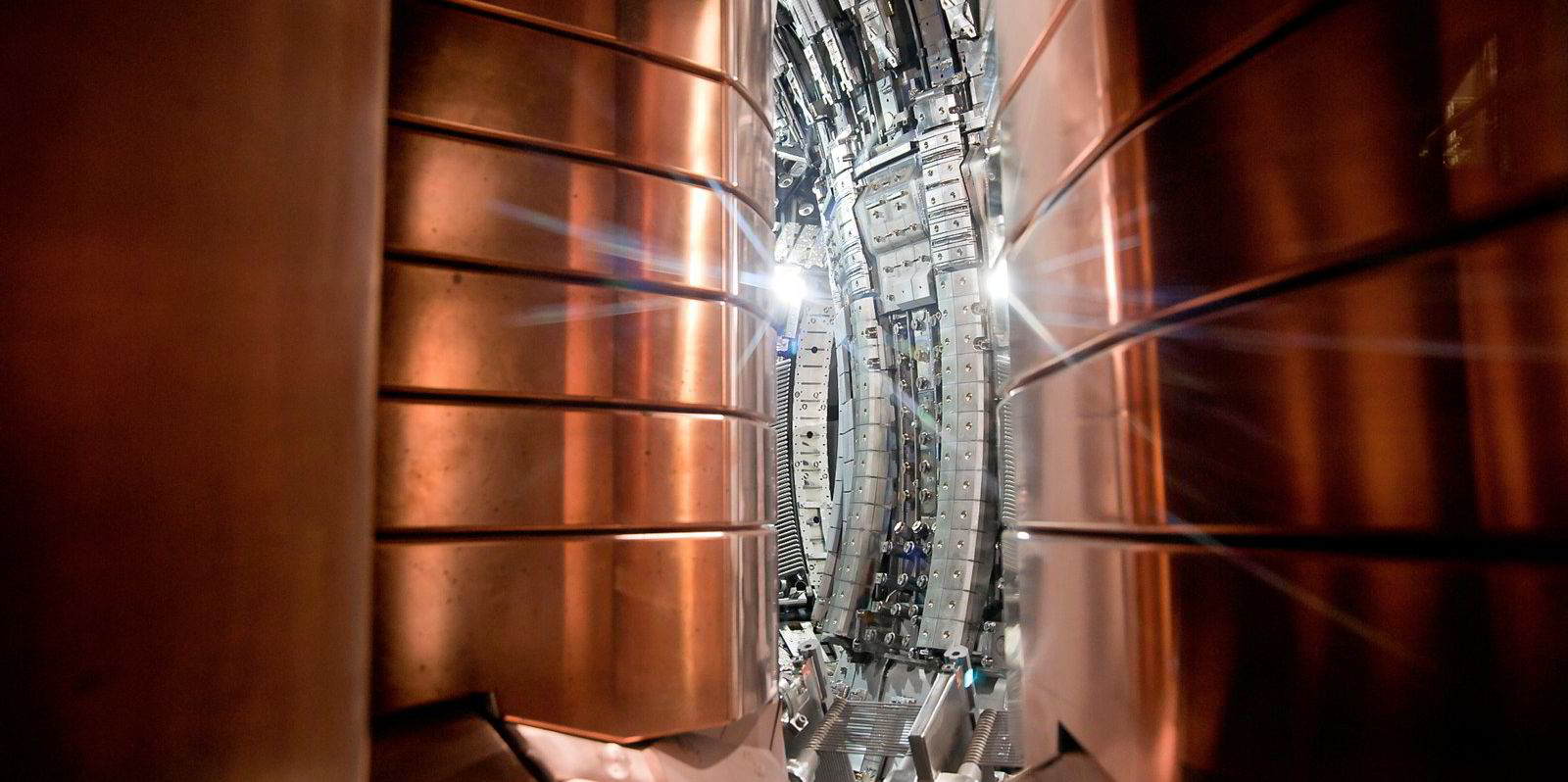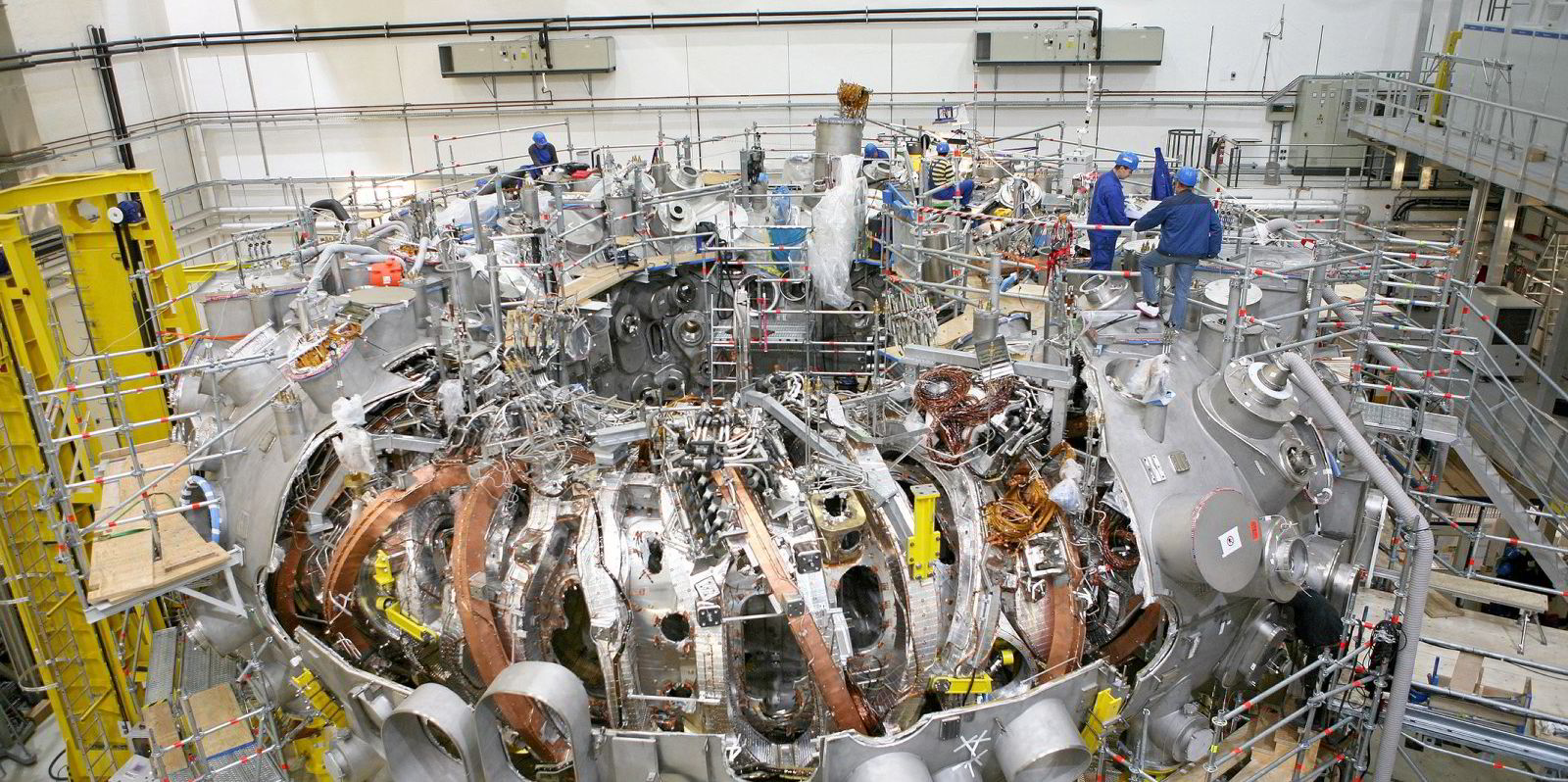The world has taken a step closer to the dream of limitless clean energy from nuclear fusion as a UK lab breaks the record for energy output.
The final experiments at the Joint European Torus (JET) project in Oxford produced power for five seconds, resulting in a “ground-breaking record” of 69 megajoules of power, the UK Atomic Energy Authority (UKAEA) announced today.
That energy was produced using just 0.2 milligrams of fuel.
This record-breaking feat was achieved late last year in the final experiments at the JET reactor.
JET is a tokamak, a design which uses powerful magnetic fields to confine a plasma in the shape of a doughnut.
It generated energy by fusing two hydrogen variants – deuterium and tritium. When these combine they produce helium and vast amounts of energy, a reaction that will form the basis of future fusion powerplants.

Nuclear fusion is the same process that generates light and heat from stars and has been labelled as a “holy grail” for clean energy.
Fusion ignition, the point at which a fusion reaction becomes self-sustaining instead of requiring a constant input of energy, was achieved for the first time in 2022 in the US after seven decades of research into the field.
“JET’s final fusion experiment is a fitting swansong after all the groundbreaking work that has gone into the project since 1983,” said the UK minister for nuclear and networks, Andrew Bowie.
“We are closer to fusion energy than ever before thanks to the international team of scientists and engineers in Oxfordshire.”
Over 300 scientists and engineers from EUROfusion – a consortium of researchers across Europe, contributed to these landmark experiments at the UKAEA site in Oxford.
Professor Sir Ian Chapman, UKAEA CEO, said: “JET has operated as close to powerplant conditions as is possible with today’s facilities, and its legacy will be pervasive in all future powerplants. It has a critical role in bringing us closer to a safe and sustainable future.”
The UKAEA said the findings will have “critical implications” for ITER – a fusion megaproject being built in the south of France with the cooperation of 35 countries, including the US, China and Russia.
The first experiments at ITER are due to start in 2025.



